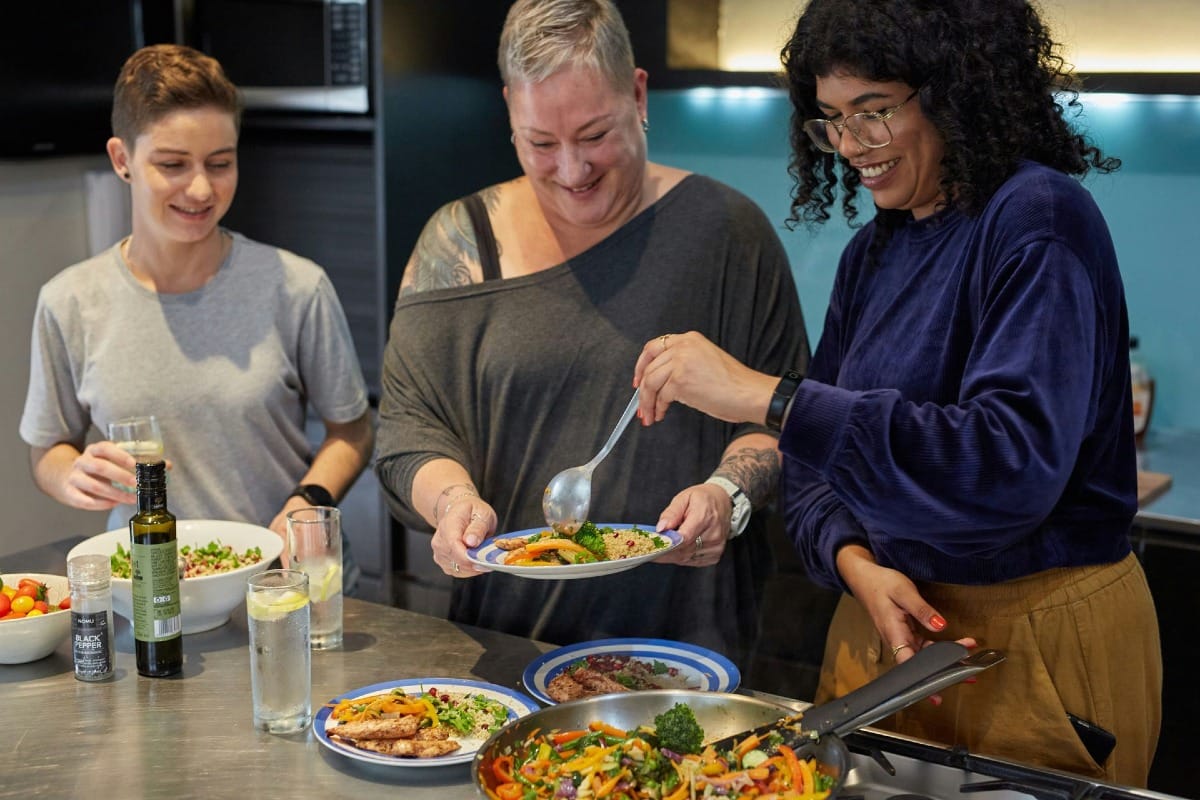Colon cancer is a significant health concern affecting millions of Americans each year. However, the good news is that many cases of colon cancer are preventable through lifestyle changes and early detection. This article explores six practical ways you can reduce your risk of developing colon cancer, empowering you to take control of your health and well-being.
Key Takeaways:
- Get regular screenings
- Maintain a healthy weight
- Eat a balanced diet rich in fruits and vegetables
- Exercise regularly
- Limit alcohol consumption
- Quit smoking
Colon cancer, also known as colorectal cancer, is the third most common cancer in the United States[1]. While this statistic may seem alarming, there's a silver lining: many cases of colon cancer are preventable. By making simple lifestyle changes and staying vigilant about your health, you can significantly reduce your risk of developing this disease. Let's dive into six effective ways to lower your colon cancer risk.
1. Get Regular Screenings
One of the most crucial steps in preventing colon cancer is to get regular screenings. Colorectal cancer screening can detect precancerous polyps, which can be removed before they turn into cancer[4]. The American Cancer Society recommends that people at average risk for colorectal cancer start regular screening at age 45[7].
There are several screening options available, including:
- Colonoscopy
- Fecal immunochemical test (FIT)
- Stool DNA test
Talk to your doctor about which screening method is best for you and how often you should be screened. Remember, early detection is key to successful treatment and prevention of colon cancer.
2. Maintain a Healthy Weight
Obesity is a significant risk factor for colon cancer[2]. Maintaining a healthy weight can help reduce your risk. If you're overweight or obese, losing even a small amount of weight can make a difference[9].
To achieve and maintain a healthy weight:
- Monitor your calorie intake
- Choose nutrient-dense foods
- Practice portion control
- Avoid crash diets and opt for sustainable lifestyle changes
Remember, the goal is long-term health, not quick fixes.
3. Eat a Balanced Diet Rich in Fruits and Vegetables
Your diet plays a crucial role in colon cancer prevention. A diet high in fruits, vegetables, and whole grains has been linked to a decreased risk of colorectal cancer[7].
Try to incorporate these foods into your diet:
- Leafy green vegetables like spinach and kale
- Cruciferous vegetables such as broccoli and cauliflower
- Berries, apples, and other fiber-rich fruits
- Whole grains like brown rice and quinoa
Additionally, limit your consumption of red and processed meats, which have been associated with an increased risk of colon cancer[5].
4. Exercise Regularly
Physical activity is a powerful tool in preventing colon cancer. Regular moderate to vigorous activity can lower your risk of developing colorectal cancer and polyps[5].
Aim for at least 150 minutes of moderate-intensity exercise or 75 minutes of vigorous-intensity exercise per week. This could include:
- Brisk walking
- Cycling
- Swimming
- Dancing
- High-intensity interval training (HIIT)
Remember, any amount of physical activity is better than none. Start small and gradually increase your activity level over time.
5. Limit Alcohol Consumption
Excessive alcohol consumption is a risk factor for many types of cancer, including colorectal cancer[2]. If you choose to drink, do so in moderation.
The American Cancer Society recommends:
- No more than 1 drink per day for women
- No more than 2 drinks per day for men
Keep in mind that when it comes to cancer prevention, less is more. If you don't drink, don't start for potential health benefits[6].
6. Quit Smoking
Smoking is harmful to nearly every organ in your body, including your colon. People who smoke are more likely to develop and die from colorectal cancer than people who don't smoke[3].
If you smoke, quitting is one of the best things you can do for your overall health. There are many resources available to help you quit, including:
- Nicotine replacement therapy
- Prescription medications
- Counseling and support groups
Talk to your healthcare provider about the best strategy for you to quit smoking.
Additional Tips for Colon Cancer Prevention
While the six steps above are crucial, there are other lifestyle modifications that can further reduce your risk of colon cancer:
- Get enough sleep: Adequate sleep is essential for overall health and may play a role in cancer prevention[8].
- Manage stress: Chronic stress can negatively impact your health. Practice stress-reduction techniques like meditation or yoga.
- Consider aspirin: Some studies suggest that regular aspirin use may reduce colon cancer risk. However, talk to your doctor before starting any new medication regimen[4].
- Stay hydrated: Drinking plenty of water can help maintain colon health and aid in digestion.
- Limit sugar intake: High sugar consumption has been linked to an increased risk of colon cancer. Try to reduce your intake of sugary drinks and processed foods[9].
Remember, these lifestyle changes not only reduce your risk of colon cancer but also contribute to overall health and well-being. It's never too late to start making positive changes to your lifestyle.
Conclusion:
Colon cancer is a serious health concern, but the good news is that many cases are preventable. By implementing these six strategies - regular screenings, maintaining a healthy weight, eating a balanced diet, exercising regularly, limiting alcohol consumption, and quitting smoking - you can significantly reduce your risk of developing colon cancer.
Remember, prevention is always better than cure. Take charge of your health today by making these lifestyle changes. If you have any concerns or questions about your colon cancer risk, don't hesitate to speak with your healthcare provider. They can provide personalized advice based on your individual risk factors and health history.
Stay informed, stay proactive, and stay healthy 😜
Citations:
[1] https://www.ncbi.nlm.nih.gov/pmc/articles/PMC6189126/
[2] https://nyulangone.org/conditions/colorectal-cancer/prevention
[3] https://www.cancer.gov/types/colorectal/patient/colorectal-prevention-pdq
[4] https://www.cancer.org/cancer/types/colon-rectal-cancer/causes-risks-prevention/prevention.html
[5] https://siteman.wustl.edu/prevention/8-ways/8-ways-to-prevent-colon-cancer/
[6] https://www.cancer.org/cancer/latest-news/six-ways-to-lower-your-risk-for-colon-cancer.html















Member discussion